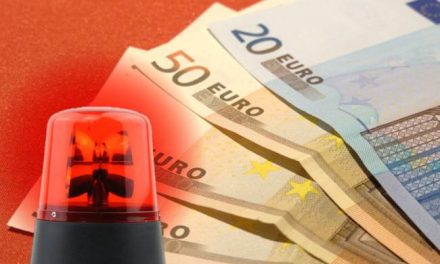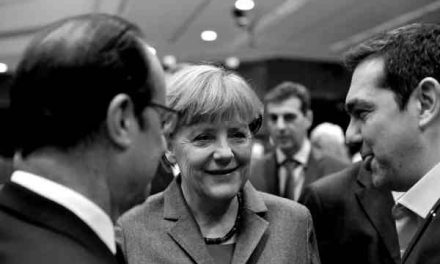Hopes for a deal between Greece and its international lenders were quickly raised and dashed Wednesday when Greek optimism of an agreement appeared to be out of kilter with European officials — who denied a deal was near.
Ewald Nowotny, governor of the National Bank of Austria and a leading member of the European Central Bank’s governing council, told CNBC Wednesday that the talks always generated a lot of “a lot of noise.”
“I think the important point is to distinguish the noise from the fact. For us, it is quite clear that we have certain conditions to be met,” Nowotny said.
Talks between Greece and its lenders and euro zone partners continued in Brussels Wednesday, with the Greek government sounding a positive note that it was looking to draft an agreement with creditors that would release aid.
But European officials were quick to pour cold water on any hopes of an imminent deal on reforms that could unlock vital financial aid for Greece worth 7.2 billion euros ($7.86 billion).
Not only did European Commission Vice President Valdis Dombrovskis say the two sides still had some way to go before any agreement could be drawn up, Reuters reported, German Finance Minister Wolfgang Schaeuble also poured cold water on any hopes, telling Germany’s ARD Television that he was surprised by the upbeat tone from Greek officials.
‘Psychological warfare’
Nowotny said the ECB was not involved in the “psychological warfare” going on between the two sides, and that the ECB was following the discussions closely.
“At the end of the day, it’s the political decisions that really makes a difference, especially for us at ECB…We have clear rules (on) how to react to certain developments, and the main perspective we have to look at is how these discussions go on between the Greek government and the different European institutions.”
The ECB is not alone in watching the discussions, with financial markets watching for any potential impact of a Greek default this summer as Athens faces several large debt repayments to make to the International Monetary Fund (IMF) and ECB. The next large debt repayment Greece owes is due to the IMF on June 5 and there are widespread fears it won’t be able to make the payment without any more aid, as government funds run low.
The governor refused to be drawn on the potential fallout of a missed Greek payment to the IMF and urged both parties to find a solution, although he alluded to a “Plan B” at the bank.
“Of course, we would also have to see what would be a worst case scenario, what would be plan B to deal with this, but I think it is not a good timing to discuss this now,” he said.
“I think the first, first priority clearly should be to get to a workable solution. But this of course needs the cooperation of all persons involved… all parties involved.”
ECB to the rescue?
Since the ECB revoked a waiver in February that allowed banks accept Greek government debt as collateral for loans, Greece’s banks have been relying on Emergency Liquidity Assistance (ELA) – effectively, emergency loans — from the central bank of Greece, but the assistance has to be approved by the ECB.
The ECB has been gradually raising the ELA funding ceiling that Greek banks can access in order to avert a cash crunch, but there is speculation over when a limit will be reached.
Nowotny said that Greece still had to meet “certain conditions” to access more financial aid.
“The one condition is, for instance, whether we can accept Greek assets, Greek bonds as collateral. The answer is, for the time being, no,” he said.
“The second question is, whether there are other ways of financing… this is the way of emergency liquidity assistance (ELA)… also this is under the control and also under the risk of the national central bank, in this case, the Greek Central Bank. But it has to get approval from the Governing Council and for this, again, we have clear rules.”



















